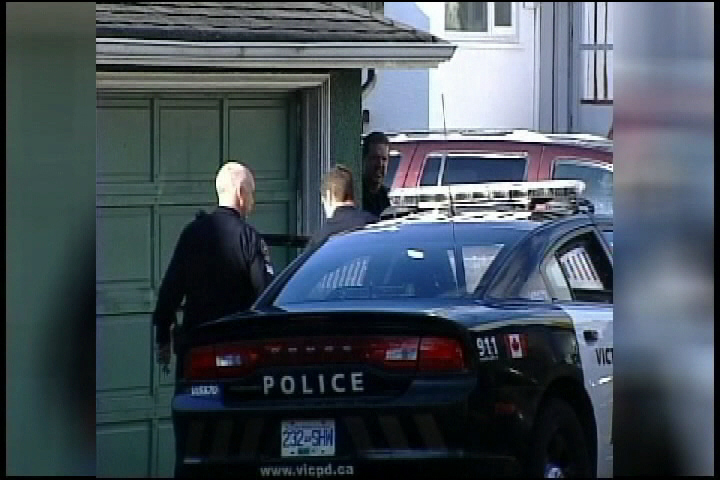WATCH: Use of force and crisis deescalation discussed at Mutch inquest into death of Victoria man shot by Victoria Police. Tess van Straaten reports.
A grieving Marney Mutch left the Victoria courthouse on Wednesday afternoon after another day of testimony at the coroner’s inquest into her son’s death.
Rhett Mutch, 20, was fatally shot by a Victoria Police officer two-and-a-half years ago after threatening to kill himself.
“They came in and they aggravated the situation,” Marney Mutch told CHEK News.
“He was holding a dinner knife in front of a table in his own home. He was slouched on the couch and not threatening himself or anybody else.”
Day three of the week-long inquest focused on use of force and the specialized crisis intervention and deescalation training ? called CID ? that police officers started receiving after inquest into Robert Dziekanski tasering death at YVR.
One of Canada’s leading experts, Victoria Police Sgt. Mike Massine who is currently seconded to the Justice Institute, was questioned at length about the training and whether responding with guns drawn to someone in distress could make the situation worse.
The use of force expert testified that disengaging and deescalating is a big part of CID training.
Officers are taught that if the situation is contained and no one is at risk, backing out of the room and calling for expert teams and negotiators is a good option.
Mutch says that begs the question of why wasn’t that done in this case? She said aiming guns at someone who’s distraught and crying escalated a under-control situation that she believes could have been resolved peacefully.
“They talk about rapport-building but say, ‘I’ve got a gun pointed at you, let’s be friends’ and it doesn’t work that way,” Mutch said.
“There was no reason they couldn’t have backed out and given him space and time.”
Sgt. Massine wouldn’t weigh in on Rhett Mutch’s case, but his testimony did raise questions about the training officers receive and whether it’s enough.
The inquest also learned debriefings after critical incidents aren’t currently mandatory and officers aren’t required to get a mental health assessment after a fatal incident.
Those two issues could potentially form some of the recommendations the jury is expected to make.





